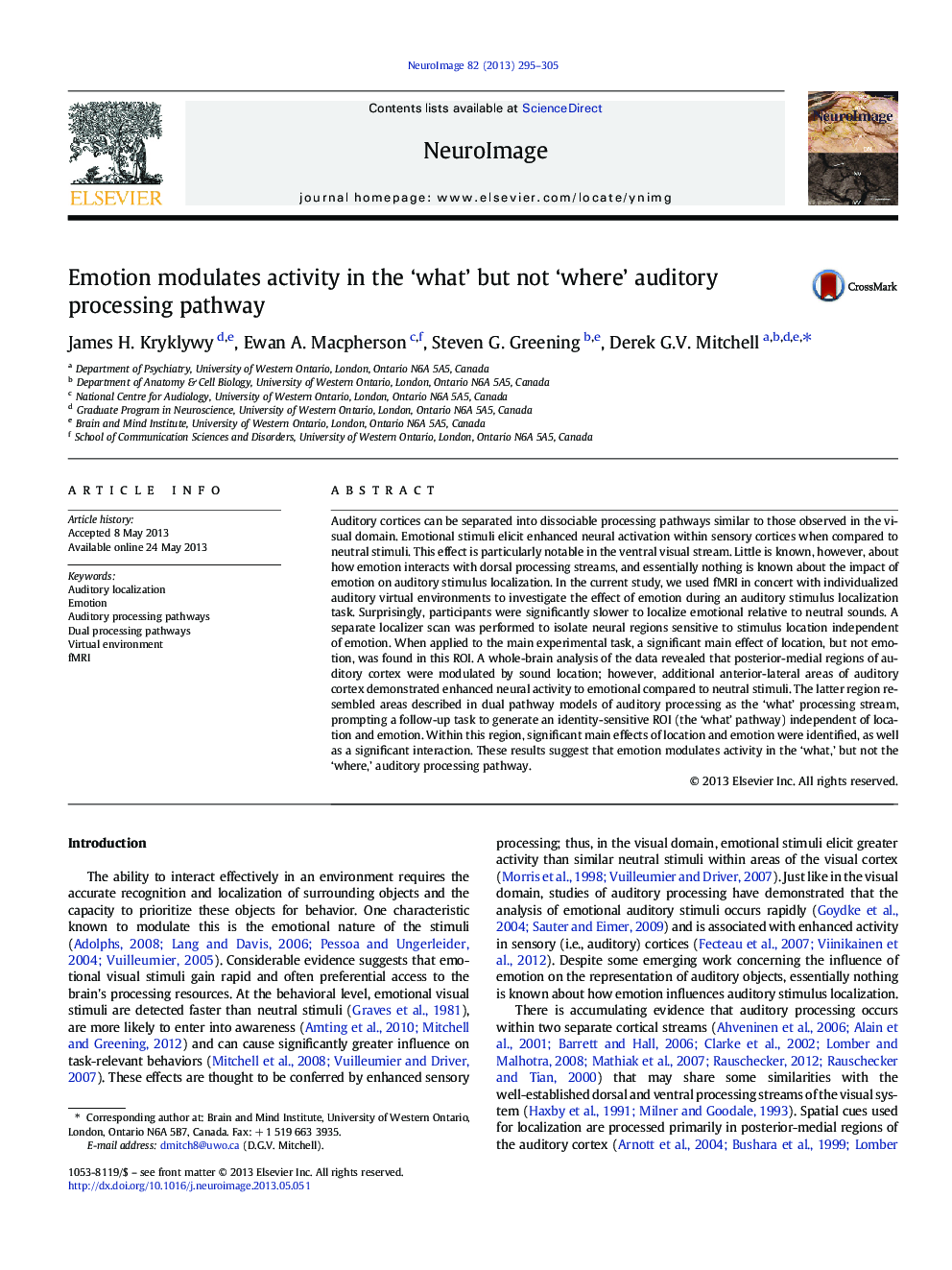| Article ID | Journal | Published Year | Pages | File Type |
|---|---|---|---|---|
| 6028931 | NeuroImage | 2013 | 11 Pages |
Abstract
Auditory cortices can be separated into dissociable processing pathways similar to those observed in the visual domain. Emotional stimuli elicit enhanced neural activation within sensory cortices when compared to neutral stimuli. This effect is particularly notable in the ventral visual stream. Little is known, however, about how emotion interacts with dorsal processing streams, and essentially nothing is known about the impact of emotion on auditory stimulus localization. In the current study, we used fMRI in concert with individualized auditory virtual environments to investigate the effect of emotion during an auditory stimulus localization task. Surprisingly, participants were significantly slower to localize emotional relative to neutral sounds. A separate localizer scan was performed to isolate neural regions sensitive to stimulus location independent of emotion. When applied to the main experimental task, a significant main effect of location, but not emotion, was found in this ROI. A whole-brain analysis of the data revealed that posterior-medial regions of auditory cortex were modulated by sound location; however, additional anterior-lateral areas of auditory cortex demonstrated enhanced neural activity to emotional compared to neutral stimuli. The latter region resembled areas described in dual pathway models of auditory processing as the 'what' processing stream, prompting a follow-up task to generate an identity-sensitive ROI (the 'what' pathway) independent of location and emotion. Within this region, significant main effects of location and emotion were identified, as well as a significant interaction. These results suggest that emotion modulates activity in the 'what,' but not the 'where,' auditory processing pathway.
Related Topics
Life Sciences
Neuroscience
Cognitive Neuroscience
Authors
James H. Kryklywy, Ewan A. Macpherson, Steven G. Greening, Derek G.V. Mitchell,
